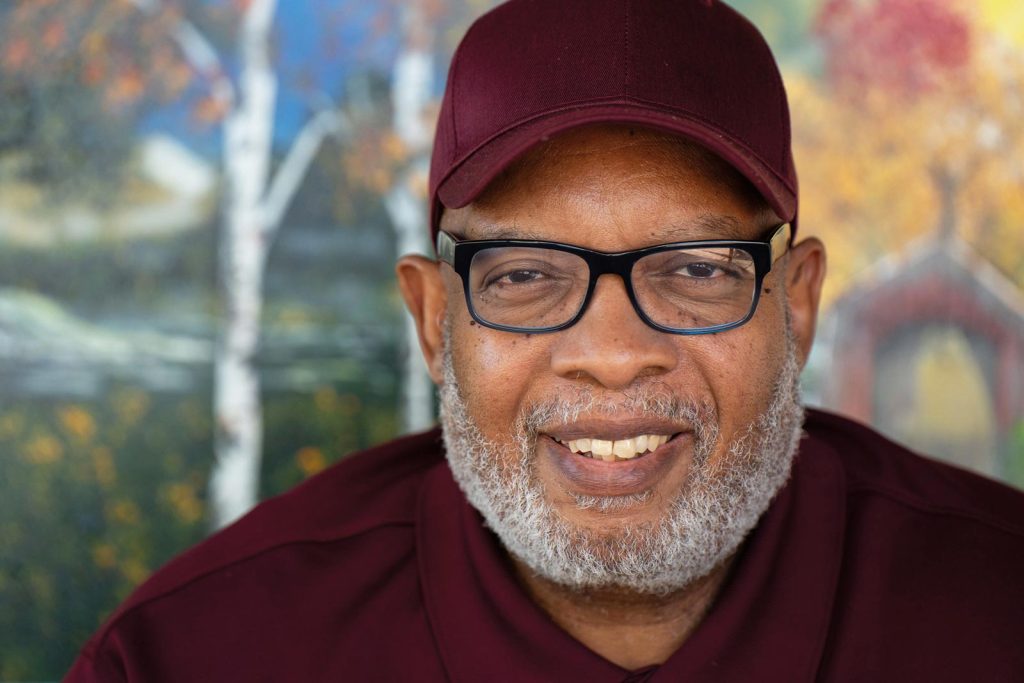Daryl Dowery

DARYL DOWERY has been with The University of Baltimore for 29 years. In two years, he hopes to retire from his role as security ambassador, but he’ll be remembered for much more than keeping campus safe— he also kept it beautiful! His wife, Hollie Dowery, is an art aficionado who was looking for an activity the couple could pursue together during their post-retirement “golden years.” She encouraged her husband to pick up a brush for the first time in 2022, but it’s artist Bob Ross who ensured Dowery hasn’t put that brush back down.
“I love Bob Ross because his voice is soothing, and he relaxes you. His artwork is beautiful, and he takes his time to go step-by-step— that’s how I grasped doing art,” said Dowery. But even more than the Ross-inspired ASMR, he’s found the act of painting itself “soothes the mind,” which has helped him ease into his new role as the University’s unofficial artist-in-residence.

In February, an exhibit of his paintings was on display at the Robert L. Bogomolny Library, and select works of his art can be found around campus, including the School of Law, president’s suite and admission office.
Currently, Dowery is working with Nicole Munchel, MFA ’16, UBalt’s digital designer and adjunct faculty member in the Integrated Design program, to digitize his catalog of over 100 works of art, ensuring his UBalt legacy will endure long after he clocks out for the last time in 2026.
